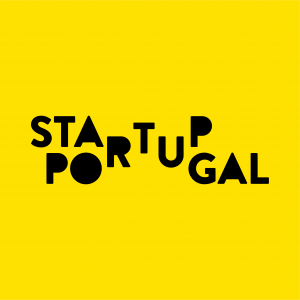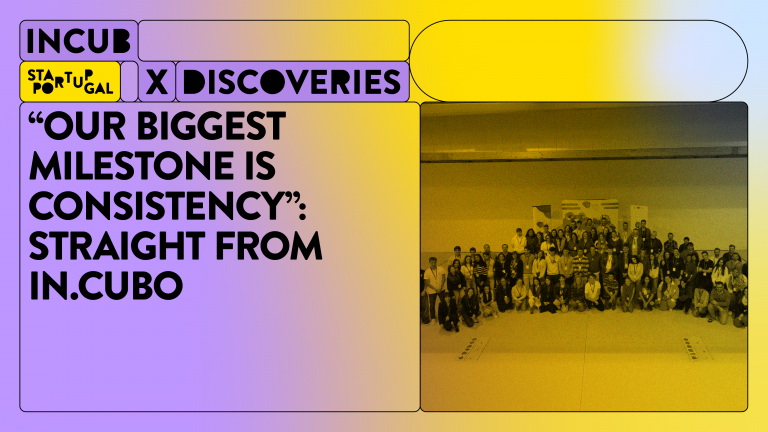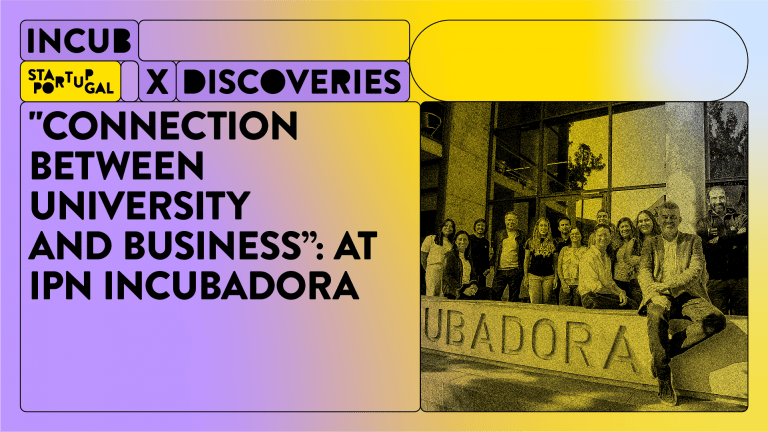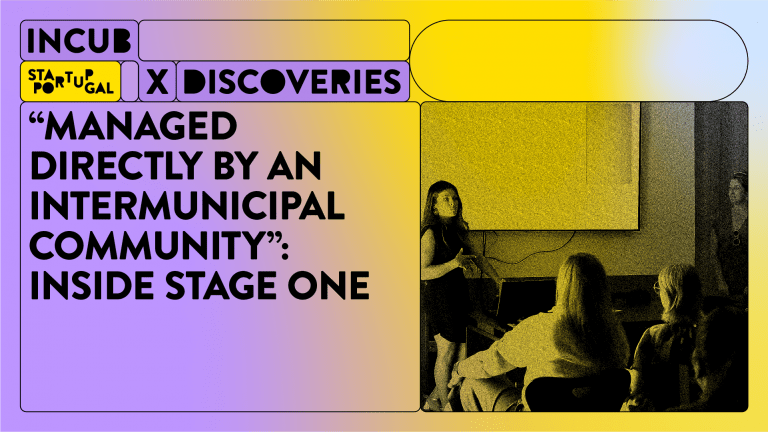“Connection Between University and Business”: At IPN Incubadora
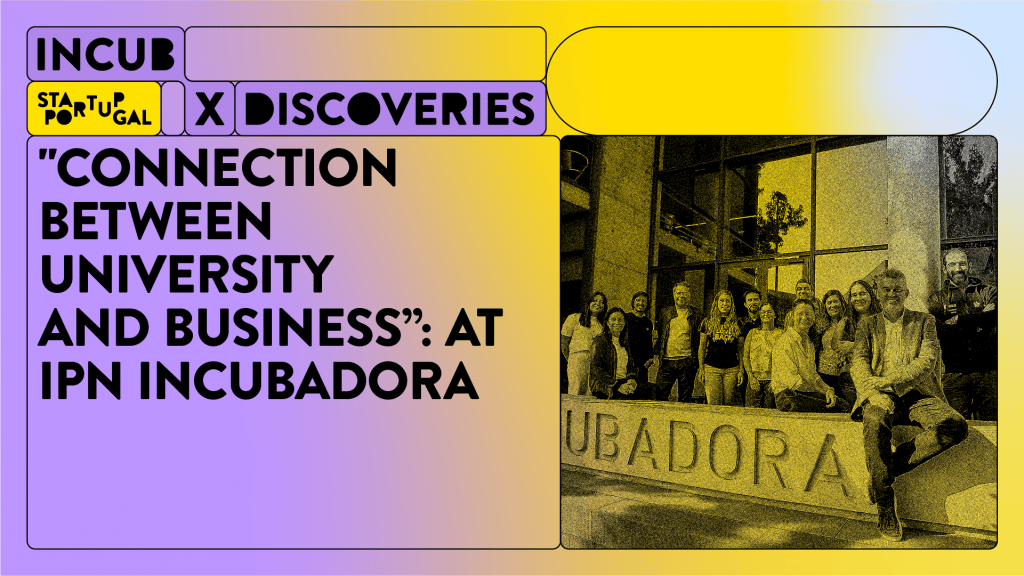
In this edition of #IncubXdiscoveries, we explore how IPN Incubadora connects academia and industry to turn research into real-world impact. From pioneering roots in Coimbra to a track record that includes Portuguese unicorns, IPN illustrates what a mature, tech-driven incubation model can achieve.
This content is also available in Portuguese.
– How did the Instituto Pedro Nunes (IPN) Incubator come about? What kind of projects do you incubate?
The Instituto Pedro Nunes (IPN) was created in 1991 in Coimbra as an initiative led by the University of Coimbra to promote technology transfer and innovation between academia and business through three main areas of activity: Applied R&D, with its own technology transfer laboratories dedicated to collaborating with the regional and national production sectors; Business Incubation for technology-based and innovative companies; and Specialized training in technology and management/entrepreneurship, aimed at employees of incubated companies, entrepreneurs, and SME professionals in general.
The business incubation activity began at the end of 1995, when the building of the first incubator was completed, making IPN one of the pioneering incubators in Portugal and a key player in the development of the entrepreneurial ecosystem in the Central Region.
The foundation of IPN — and consequently its incubator — was directly related to the need to accelerate the creation of innovative companies, especially university spin-offs, enabling the transformation of scientific research results into economic value. The close and collaborative environment with the University of Coimbra’s research centers, particularly the Faculty of Science and Technology, has always been a distinctive feature of the incubator.
We support technology-based and innovative projects and advanced services, with special emphasis on academic spin-offs and other startups strongly linked to knowledge centers.
– What does your incubation model look like?
The Instituto Pedro Nunes (IPN) incubation model is based on structural and multidisciplinary support for innovative, technology- and science-based projects, combining physical, technical, and network resources to support the development of emerging companies.
The IPN model is based on three main pillars: The connection between universities and companies, promoting innovation and technology transfer through seven applied R&D laboratories; The incubation and acceleration of technology- and innovation-driven ideas and companies, emphasizing quality, rigor, and entrepreneurship; and Specialized training in technology and management to foster a culture of quality, rigor, and entrepreneurship.
The incubation process typically includes two modalities: Virtual Incubation, for startups in their early stages, and Physical Incubation, for companies with validated business plans, giving access to physical space, laboratories, mentoring, management support, marketing, market access, funding, networking, and intellectual property support.
IPN also stands out for the high survival rate of its incubated companies, its large number of success stories, international recognition, and cooperation with other incubators in the Central Region under the “Powered by IPN” philosophy, such as HIESE – Habitat for Innovation in Strategic Sectors, in Penela. IPN has supported the creation and/or development of three Portuguese unicorns (Feedzai, Talkdesk, and Sword Health) and was instrumental in the foundation of four of the six largest software development companies in Portugal (Critical Software, Critical Techworks, Feedzai, and WIT Software).
– Tell us the story of a startup that left its mark on the incubator. And where did incubation make a difference?
Probably the most remarkable, as it was the first major success story, was Critical Software, founded in 1998, which immediately stood out for its collaboration with NASA and later with ESA. The incubator’s environment allowed the company to benefit from infrastructural, technical, and scientific and business network support, driving its early growth.
In 2011, Feedzai emerged as our first unicorn, benefiting from a wide range of services — infrastructure, accounting, access to funding programs, investor networking, and joint projects with our IT lab.
More recently, we’ve seen examples such as Ethiack — a leading name in AI-based cybersecurity, using artificial hackers to test system vulnerabilities — and Framedrop, with its AI-powered platform that automates video editing and post-production. These two companies won the Road 2 Web Summit program in 2023 and 2024, respectively, proving the outstanding quality of our incubated startups.
– Failure is also part of the journey. What’s the biggest lesson from something that didn’t go well?
We’ve been learning continuously over the years. In the past, we had one or two cases of “mentorship” encouraged by us — where experienced entrepreneurs or alumni supported newcomers — that didn’t work out well. We learned that we must be much more careful in these situations, managing expectations from the start and making our role of complete independence clear.
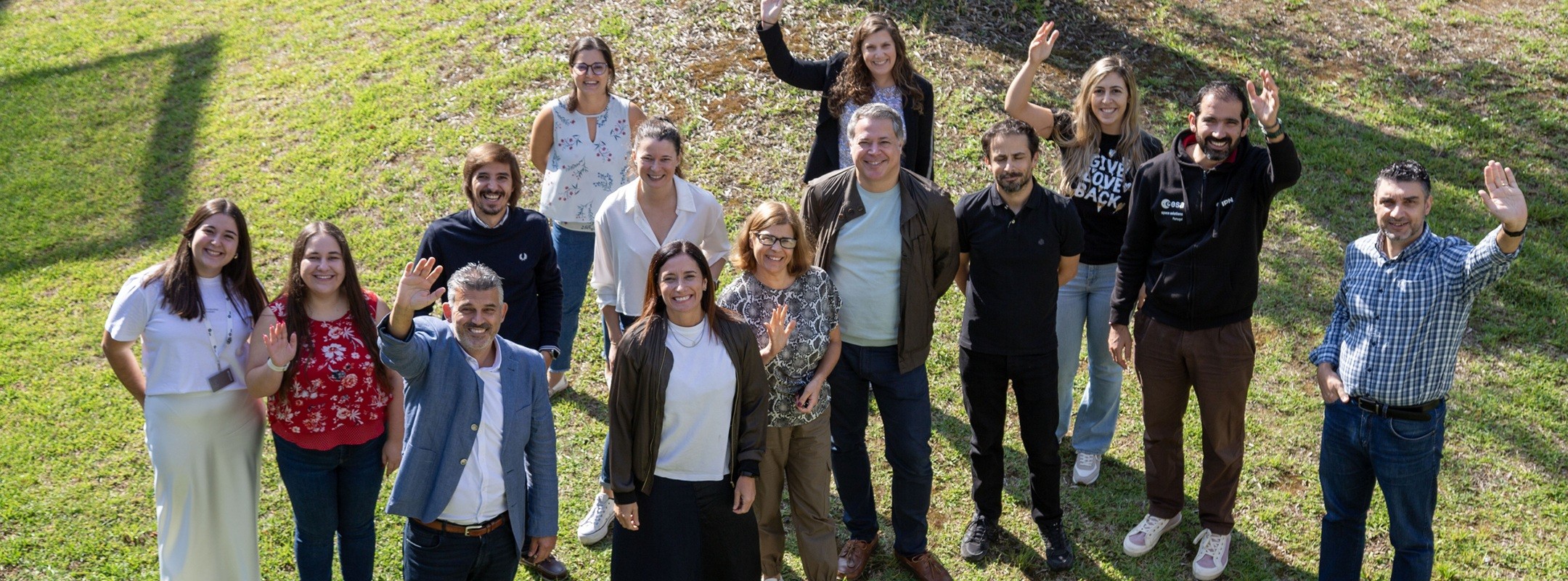
– What makes your incubator stand out? In other words, what do you offer that helps startups succeed?
A highly qualified and experienced team of around 30 professionals in economics and finance, management, and engineering. A wide and deep range of specialized services delivered in-house: accounting and tax support for startups; applications for R&D, internationalization, and qualification funding; fundraising with business angels and VCs; technological validation and product co-development; and intellectual property services. Access to seven in-house R&D laboratories (with more than 130 researchers and technicians), high-level infrastructure, and close proximity to the University of Coimbra.
– Community is one of the key factors that distinguishes an incubator from a shared office space. How do you nurture yours, and what plans do you have to make it stronger?
We organize a large number of thematic and networking events throughout the year (training sessions, workshops, presentations, “welcome summer,” “goodbye summer”…), always fostering moments of sharing and collaboration. Beyond that, our incubation and acceleration managers are strongly committed to building community ties on a daily basis, promoting formal and informal meetings among resident entrepreneurs to explore concrete opportunities for synergies and collaboration with each other and with IPN’s various labs and departments.
– What are the main challenges for incubation in your specific context?
In our case, given our demanding incubation model and the broad range of in-house services we provide, the key challenge lies in recruiting and retaining qualified professionals, as they are highly sought after in the market. On the demand side, in recent years we’ve noticed a decline in academic spin-off projects — our priority and main reason for existing within the University of Coimbra context — so it’s essential to analyze the causes and propose measures to the government and universities to stimulate this path of technology and knowledge transfer.
– Is there any news, event, or initiative you’d like to share with us?
The Startup Capital Summit (SCS) is one of Portugal’s leading events on venture capital, innovation, entrepreneurship, and technology transfer, held every two years in Coimbra. It’s a one-day event that brings together entrepreneurs, investors, researchers, and companies at the Convento São Francisco to discuss the latest ecosystem trends, under the high patronage of the President of the Portuguese Republic.
SAVE THE DATE #SCS26: June 3, 2026, Convento São Francisco, Coimbra.
ABOUT #INCUBXDISCOVERIES
#IncubXdiscoveries is Startup Portugal’s monthly feature that will help you discover Portuguese incubators. What projects they incubate, how they manage their community and what success stories they’ve had and future projects are some of the topics covered in these interviews.
If you’d like to find out more about IPN Incubadora, either because you’d like to see your project incubated in this region or because you’d like to establish a partnership, contact the Startup Portugal team at incubadoras@startupportugal.com.
Other blog posts
